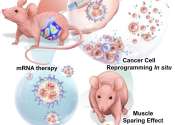Reliably estimating proportion of bait-vaccinated populations in wildlife
Researchers developed a ground-breaking model to estimate bait vaccination effectiveness in wild animals based on the proportion of immunized animals in a population and the number of vaccine applications.









